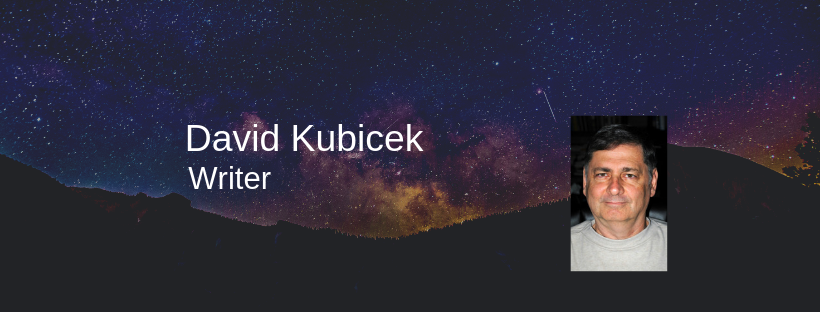by David Kubicek
Editing fiction is subjective. The best stories don’t always make the most money while some seriously awful stories make millions.
An irritating misconception in our society is the notion that the size of one’s paycheck is in direct proportion to the quality and importance of one’s work. Unfortunately, this misconception is often applied to writers, even by other writers and editors, who should know that one editor’s gem is another editor’s piece of crap. Don’t believe me? Check out some rejections of famous writers here.
Many years ago Jeff Mason and I edited a collection of horror stories, October Dreams: A Harvest of Horror (Kubicek & Associates, 1989), because we weren’t happy with the quality of stories being published in the current crop of original horror anthologies. We thought we could do better, and judging from our book’s reception, I think we succeeded, or at least we collected a group of horror stories as good as anything on the market.
reception, I think we succeeded, or at least we collected a group of horror stories as good as anything on the market.
After OD was highly recommended by Booklist, major distributor Baker & Taylor ordered it by the carton, making it a best seller for our tiny company. One of the stories–“Mr. Sandman”, by Scott D. Yost–was selected for inclusion in Karl Edward Wagner’s The Year’s Best Horror Stories XVIIL Someone even tried to nominate OD for a Horror Writers of America award, which is where the trouble started.
We were informed that October Dreams was not eligible for an award because the writers were required to have been paid three cents per word or more to be considered “professional.” We’d had the audacity to pay our contributors one cent per word–which actually was per 1,000 copies printed, so with each printing our contributors would be paid again.
This set off a minor controversy. On one side were those of us who argued that work shouldn’t be judged by how much a writer is paid (writers are often undervalued anyway) but by how good the writing is. The other side argued–and these were mostly writers who met the three cents or more threshold–that writers had worked long and hard to be paid three cents a word or more and–God forbid–shouldn’t have to compete with writers who are paid less even if the story is better [my italics].
Professionalism does not have to do with how much writers get paid for their stories, nor does it have to do with how popular a writer is. I know of one writer–who I will not name–who had a huge payday, on the order of $1,000 per word for two words, the words making up his famous name. The story attached to that name was utter garbage and would have been rejected immediately if it had been written by an unknown writer.
Professionalism has to do with having cultivated the skill to tell a good story. It has to do with having learned the writing craft to tell it well. It has to do with having learned how to approach agents and editors when marketing your story. It has to do with how you handle rejection. And, above all, it means doing your best work even when you reach the level of fame where editors will pay you only for your name because your name will sell magazines.
Few writers are able to make a living writing fiction, and many highly-respected literary magazines pay only in copies, and many excellent stories are rejected by many editors before they find a home. Editing is a subjective process and has more to do with how well an editor likes a story than on how well it is written or how much the writer is paid for it. A famous name on a story doesn’t necessarily guarantee its quality; how well the story is written does.
For more information about David Kubicek’s books click here.


